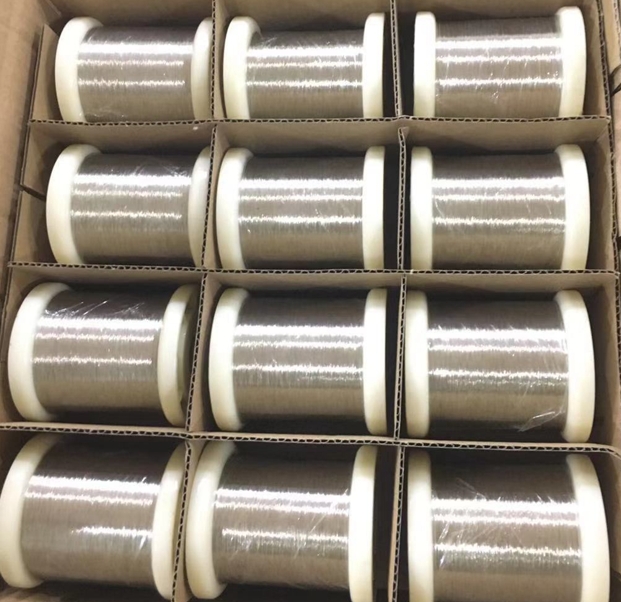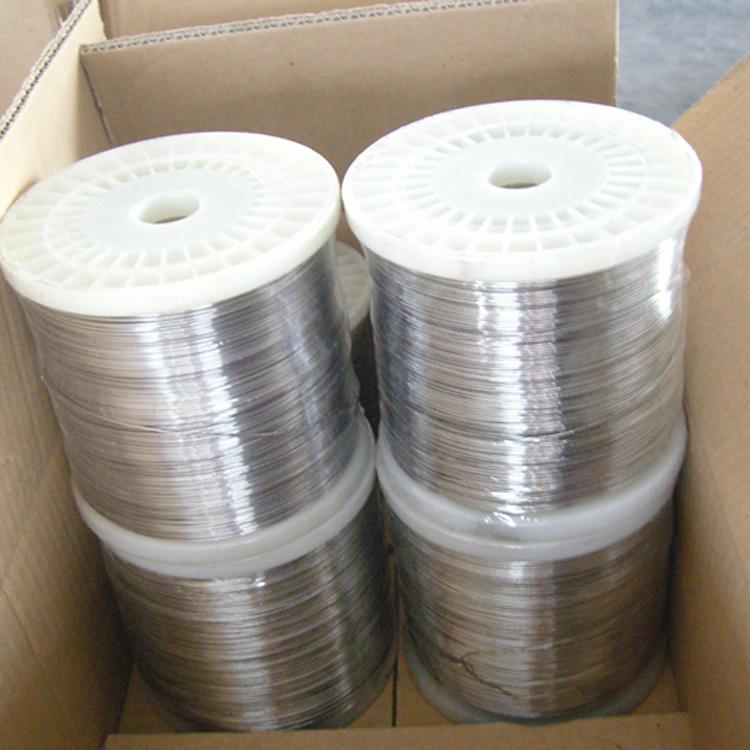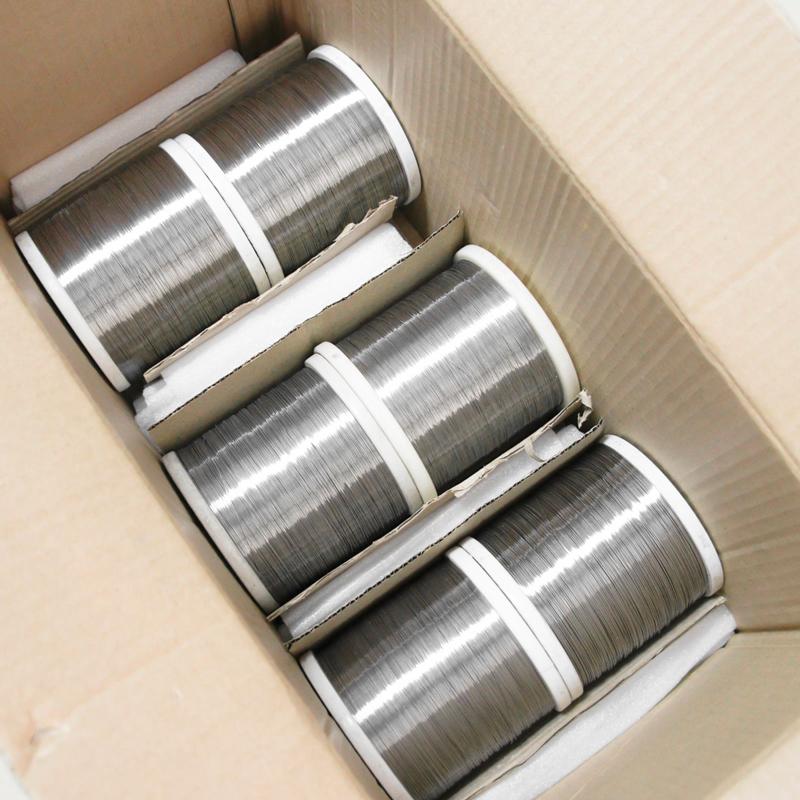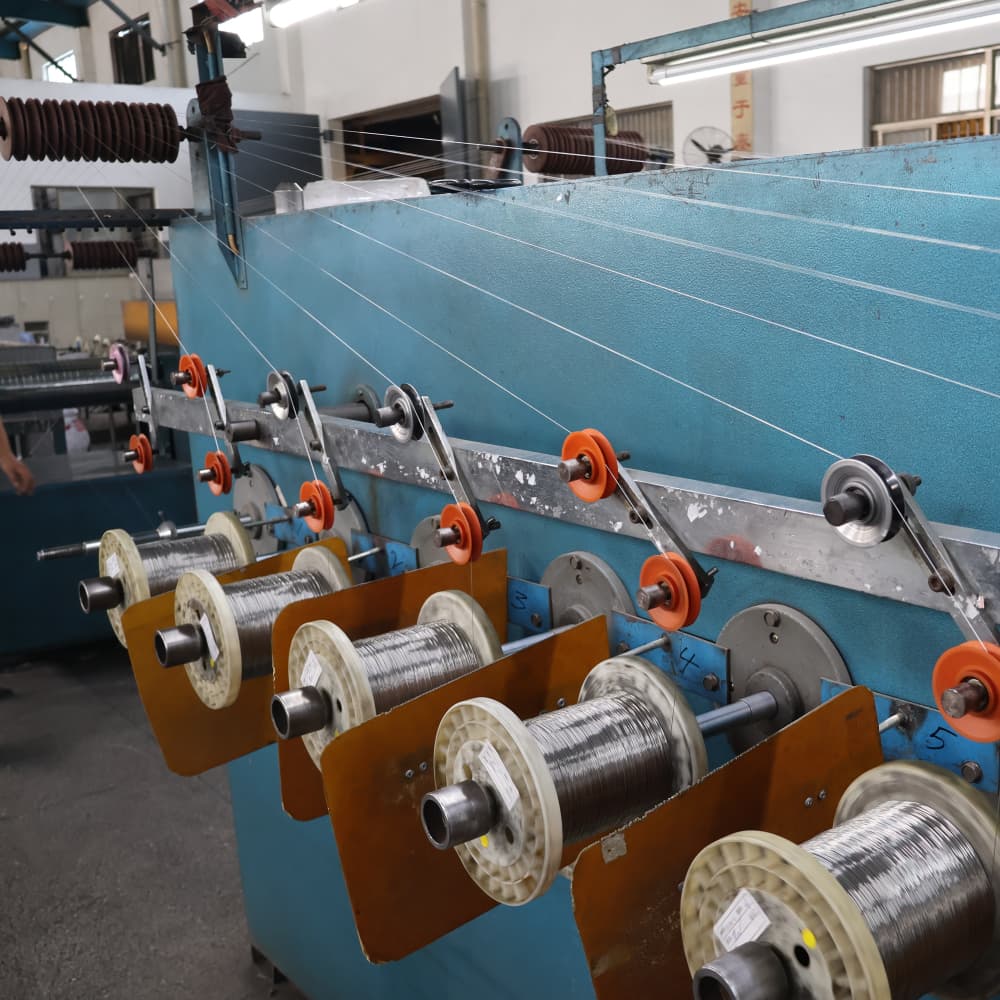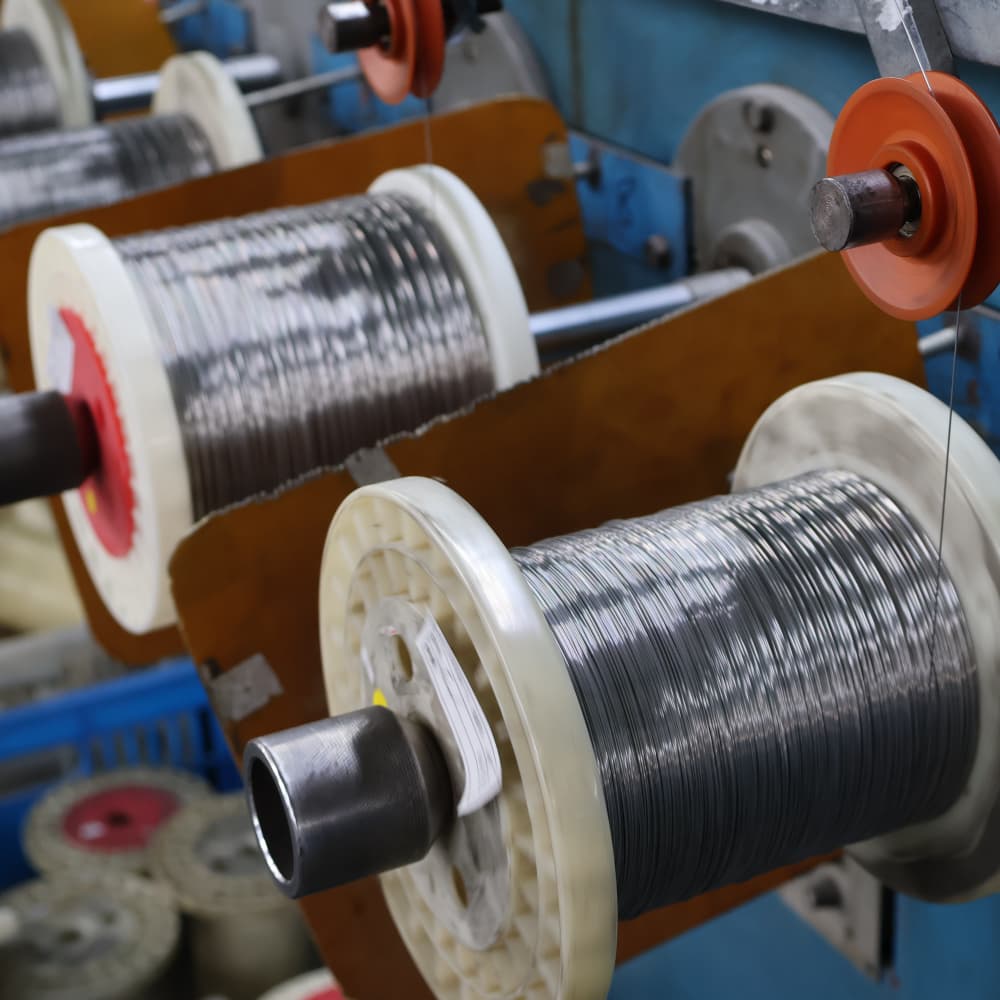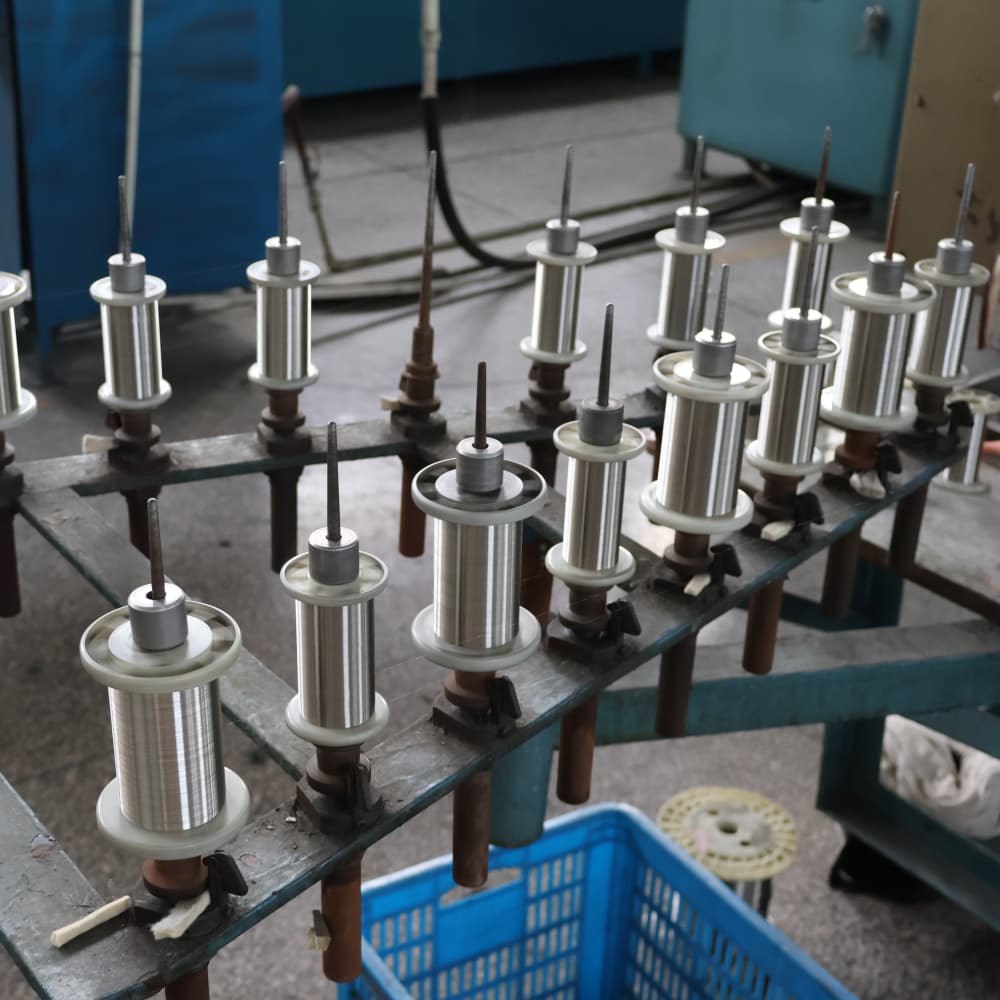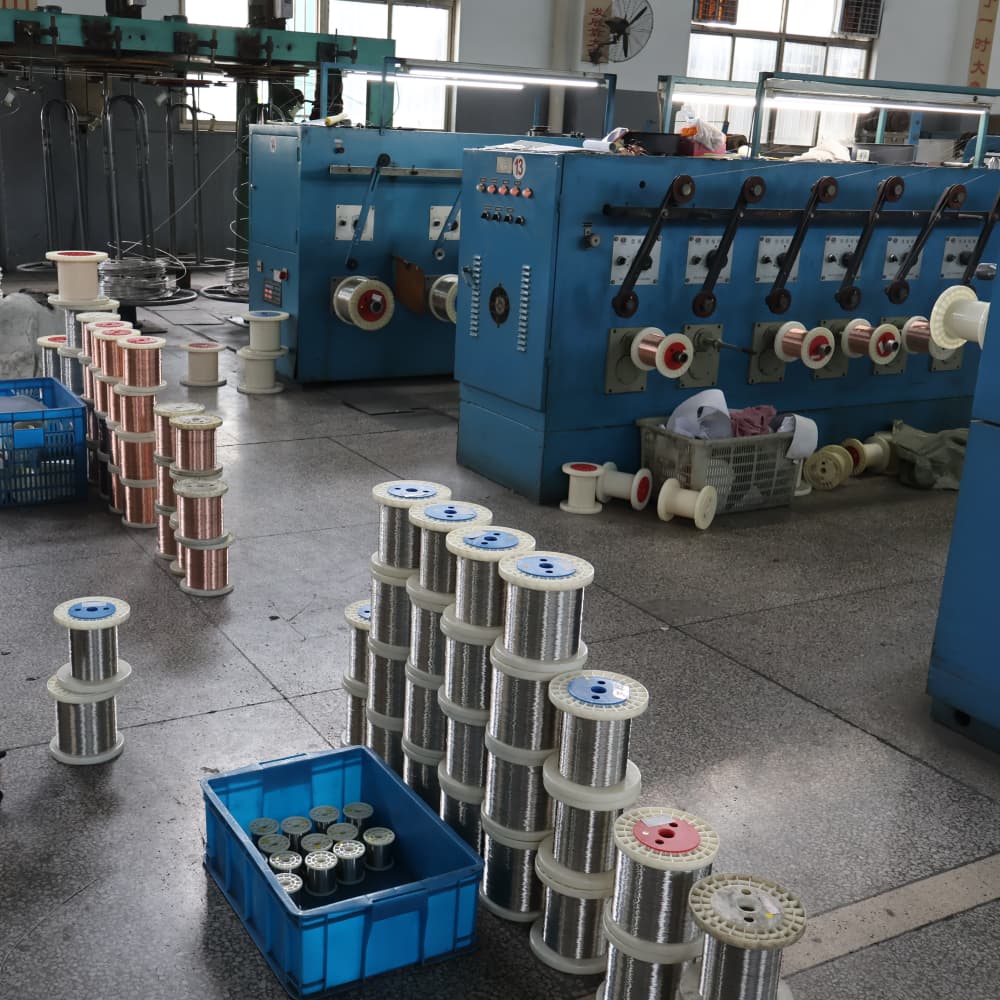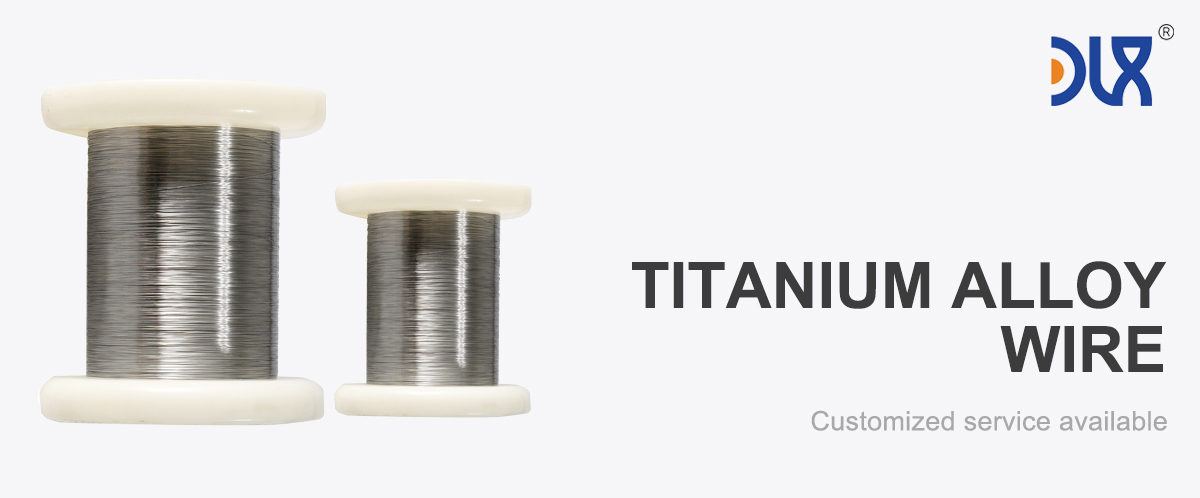
Our ASTM B863 Titanium Wire is a powerhouse for industrial and chemical processing, built to tackle the toughest environments where corrosion and durability are critical. Available in Grade 2 (commercially pure titanium) and Grade 5 (Ti-6Al-4V with 6% aluminum and 4% vanadium), this wire meets the strict ASTM B863 standard, ensuring top-notch quality for demanding applications. Whether it’s heat exchangers, piping systems, or chemical reactor components, our titanium wire delivers unmatched performance.
We offer this wire in diameters from 0.1mm to 10mm, in coils, spools, or custom-cut lengths to fit your project needs. Grade 2 shines for its corrosion resistance and formability, while Grade 5 brings extra strength for high-stress applications. Both resist aggressive chemicals like acids and chlorides, making them perfect for chemical plants and industrial settings. Lightweight and reliable, our wire helps optimize equipment efficiency while standing up to harsh conditions.
This titanium wire is a game-changer for industrial and chemical processing. Grade 2’s tensile strength of 345-450 MPa makes it strong enough for most applications, with excellent ductility for shaping into complex parts like valve components. Grade 5, with a tensile strength of 900-1000 MPa, is a beast for high-pressure systems, outpacing 316L stainless steel (485-620 MPa) in both strength and corrosion resistance. Unlike stainless steel, which can suffer chloride-induced pitting, our titanium wire stays corrosion-free in acidic and saline environments.
The lightweight nature of titanium—around 4.43-4.51 g/cm³ compared to stainless steel’s 8.0 g/cm³—means you can reduce equipment weight without sacrificing durability, a big win for efficiency-driven industries. Grade 2 handles temperatures up to 400°F (204°C), while Grade 5 pushes it to 600°F (316°C), covering a wide range of processing conditions. Grade 2’s formability makes it a breeze to work with, while Grade 5’s hardness requires our advanced machining techniques to deliver flawless results. Both grades are weldable, ensuring strong, corrosion-resistant joints for your systems.
| Titanium (Ti) | Aluminum (Al) | Vanadium (V) | Tin (Sn) | |
| Ti-6Al-4V | Rest | 5.5%-6.8% | 3.5%-4.5% | |
| Ti-5Al-2.5Sn | Rest | 4.5%-5.5% | 2.0%-3.0% |
Physical Properties
| Density | 4.4-4.5g/cm³ |
| Melting Point | 1660°C |
| Coefficient of Thermal Expansion | 8-10×10⁻⁶/K (20°C-500°C) |
| Thermal Conductivity | 6-22 W/(m·K) (depending on alloy grade) |
| Electrical Resistivity | 0.14-0.17 μΩ·m |
| Tensile Strength | 600-1200 MPa (depending on alloy grade) |
| Yield Strength | 480-1100 MPa |
| Elongation at Break | 10%-25% |
| Hardness | 200-400 HB |

For more details, pls directly contact us.
The industrial and chemical processing sectors are buzzing with growth, and our ASTM B863 titanium wire is right in the mix. With global demand for chemical products rising, plants need materials that can handle corrosive substances like sulfuric acid or chlorine without breaking down. Titanium’s superior corrosion resistance makes it a top pick, especially as industries push for longer-lasting, low-maintenance equipment. The global chemical processing market is expected to grow steadily, and our wire is poised to meet that demand.
Sustainability is a big trend shaping the industry. Companies are looking for materials that reduce energy use and environmental impact. Our titanium wire’s lightweight properties help cut energy costs in processing equipment, while its durability reduces replacement frequency. Additive manufacturing is another hot topic, enabling custom components like intricate heat exchanger coils. Our wire is 3D-printing-ready, supporting innovative designs with minimal waste.
Cost is always a factor, as titanium’s production is more complex than stainless steel. But advancements in the Kroll process and titanium recycling are bringing costs down, and our optimized manufacturing keeps prices competitive. The industry’s shift toward green production aligns with our commitment to sustainable practices, ensuring our wire meets both performance and environmental goals.
Applications of ASTM B863 Titanium Wire
Our ASTM B863 titanium wire is a workhorse in industrial and chemical processing. Grade 2 is perfect for heat exchangers, piping, and valves exposed to corrosive chemicals, thanks to its formability and resistance to acids and chlorides. Grade 5 steps up for high-pressure systems like reactor vessels or pump components, where its strength shines. Both grades are used in chemical plants for equipment that needs to withstand aggressive environments without corroding or degrading.
Beyond chemical processing, our wire finds a home in other industries. In marine applications, it’s used for seawater-resistant fittings and cables. Aerospace relies on Grade 5 for structural components and Grade 2 for non-structural parts. Medical applications leverage both grades for biocompatible implants. But in industrial and chemical settings, this wire truly excels, keeping systems running smoothly in conditions that would eat away at lesser materials.
Company Advantages: Why Choose Us
When it comes to ASTM B863 titanium wire, we’re the ones to trust. Our decades of experience in titanium production mean we deliver wire that meets the highest standards, with every batch tested for composition, strength, and surface quality. We use state-of-the-art facilities to produce wire that’s consistent and reliable, whether you’re using Grade 2 for flexible piping or Grade 5 for heavy-duty reactors.
We pride ourselves on flexibility. Need a specific diameter or custom length? We’ve got you covered. Our just-in-time supply chain ensures you get what you need without overstocking, saving you money. We’re also ahead of the curve on industry trends, investing in R&D for additive manufacturing and sustainable production to keep our wire cutting-edge. Our technical support team is always ready to help, whether you’re selecting the right grade or optimizing a chemical processing application.
Cost-effectiveness is another strength. By streamlining production and sourcing high-quality raw materials, we keep prices competitive without skimping on quality. Our commitment to sustainability means we’re adopting greener methods, aligning with the industry’s eco-friendly push. When you choose our titanium wire, you’re getting a partner who delivers quality, innovation, and reliability every time.
Comparison Parameters Table
|
Parameter |
Grade 2 Titanium Wire |
Grade 5 Titanium Wire (Ti-6Al-4V) |
316L Stainless Steel Wire |
|---|---|---|---|
|
Composition |
99.2% Ti (pure) |
6% Al, 4% V, 90% Ti |
Fe, 16-18% Cr, 10-14% Ni, 2-3% Mo |
|
Tensile Strength |
345-450 MPa |
900-1000 MPa |
485-620 MPa |
|
Yield Strength |
~275 MPa |
~830 MPa |
~170 MPa |
|
Density |
4.51 g/cm³ |
4.43 g/cm³ |
8.0 g/cm³ |
|
Corrosion Resistance |
Excellent (acids, chlorides) |
Excellent (seawater, chemicals) |
Good (prone to chloride attack) |
|
Heat Resistance |
Up to 400°F (204°C) |
Up to 600°F (316°C) |
Up to 1600°F (870°C) |
|
Formability |
High (very ductile) |
Moderate (less ductile) |
High |
|
Weldability |
Excellent |
Good (inert gas needed) |
Excellent |
|
Applications |
Chemical, marine, medical |
Aerospace, chemical, marine |
Chemical, industrial |
|
Cost |
Lower (pure titanium) |
Higher (alloyed) |
Lowest |
The future for ASTM B863 titanium wire in industrial and chemical processing is bright. As chemical plants expand and demand for corrosion-resistant materials grows, our wire will play a bigger role. The push for energy-efficient equipment and sustainable practices will drive demand for lightweight, durable materials like titanium. Additive manufacturing will continue to open new possibilities, from custom reactor parts to optimized heat exchangers, and our wire is ready for these advancements.
Emerging technologies, like carbon capture systems and green chemical production, will also rely on materials that can handle harsh conditions without degrading. Our wire’s corrosion resistance and versatility make it a perfect fit. With our focus on innovation and sustainability, we’re poised to lead the way in supplying titanium wire for the next generation of industrial and chemical processing solutions.
Conclusion
Our ASTM B863 titanium wire is the ultimate choice for industrial and chemical processing, offering unbeatable corrosion resistance, lightweight properties, and durability. From heat exchangers to reactor vessels, it delivers performance you can count on in the harshest environments. With industry trends leaning toward sustainability and innovation, our wire is ready to power the future of chemical processing. Backed by our expertise, flexible production, and commitment to quality, choosing our titanium wire means choosing a partner built for your success.
For more details, pls directly contact us.
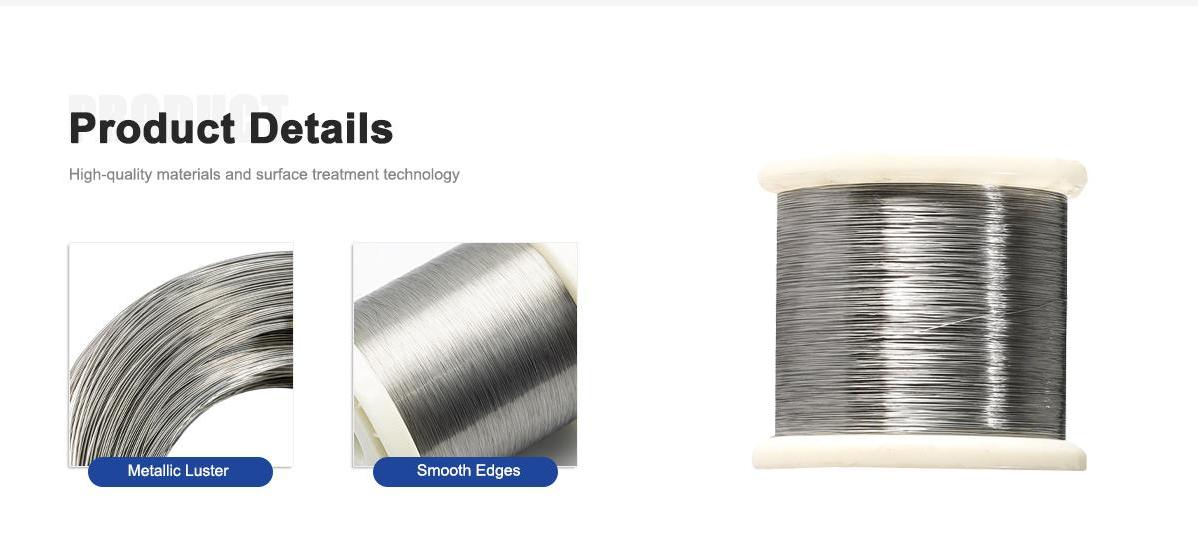
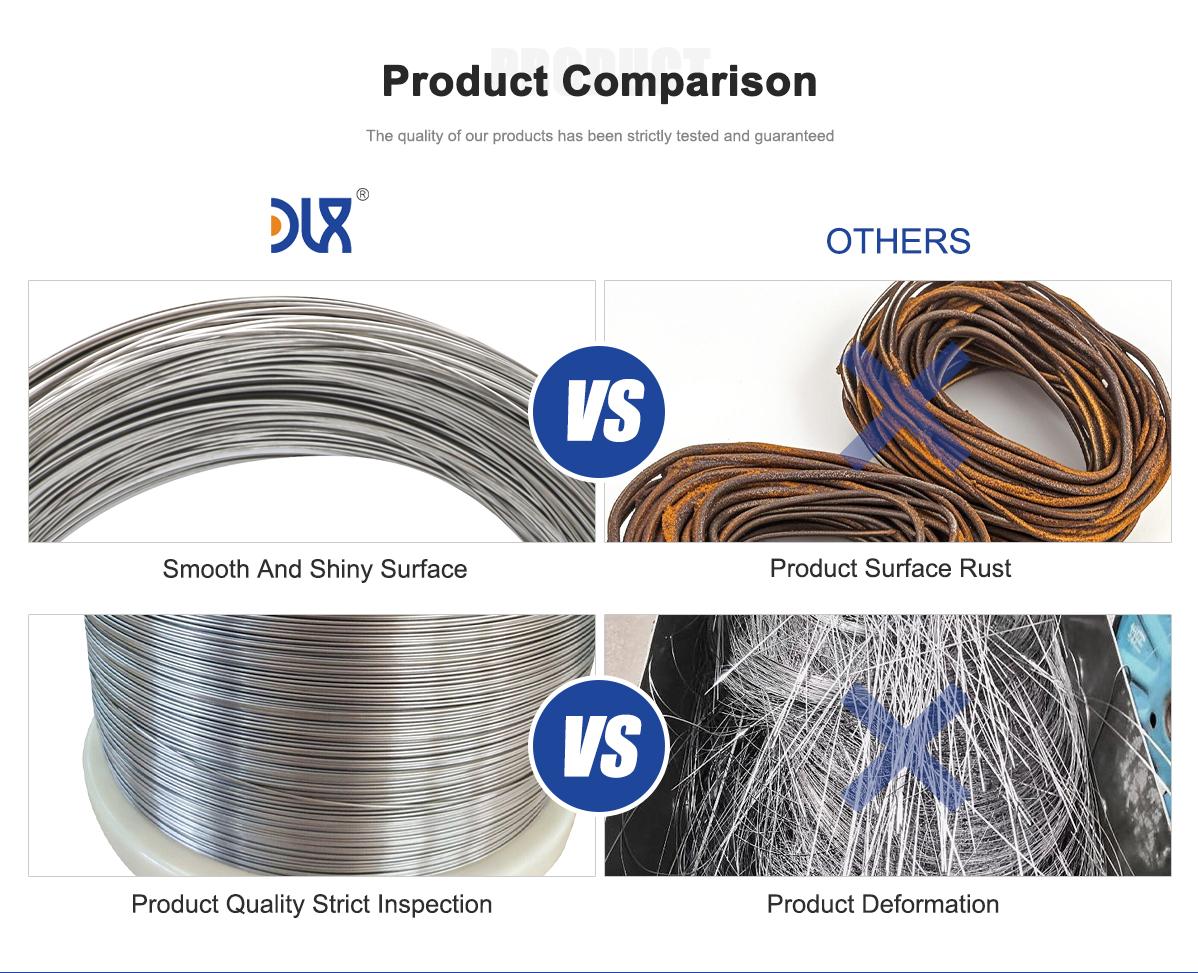
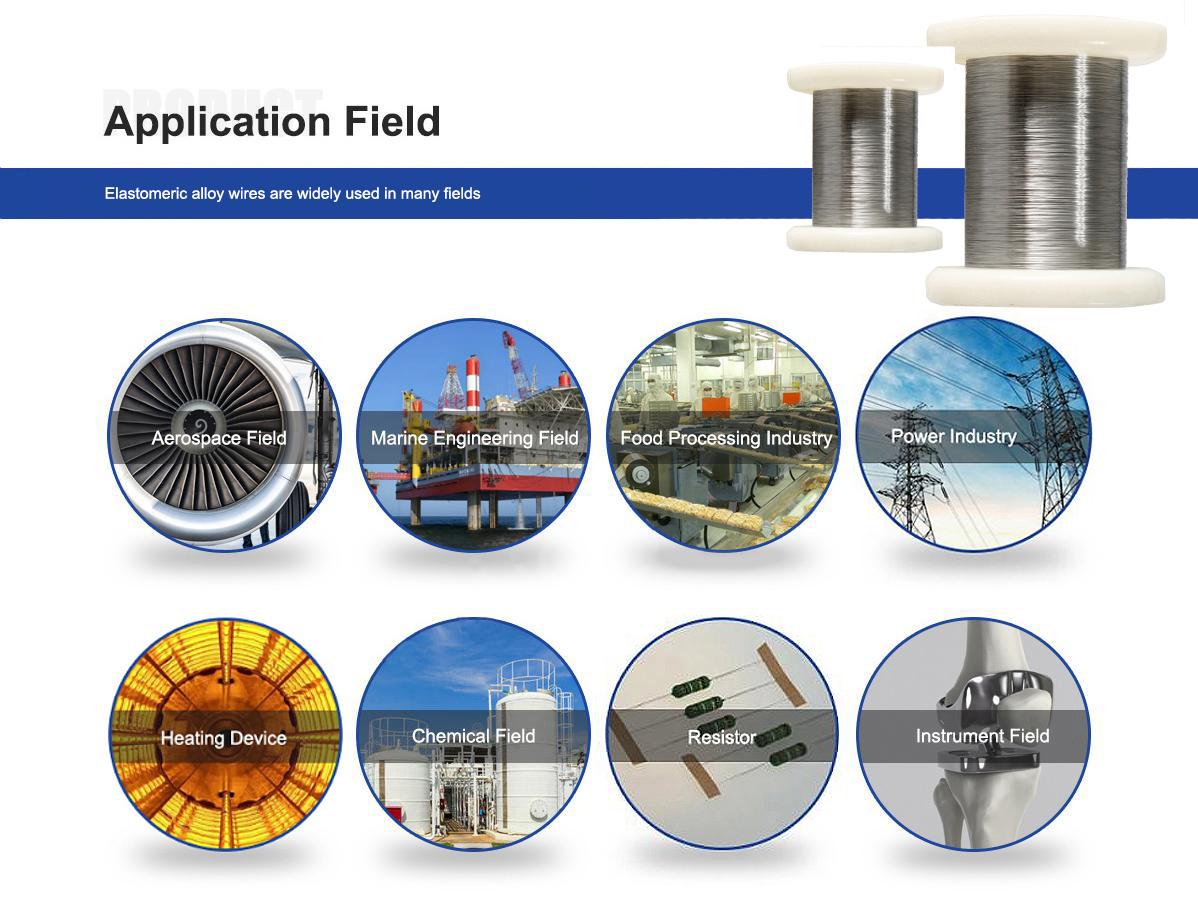
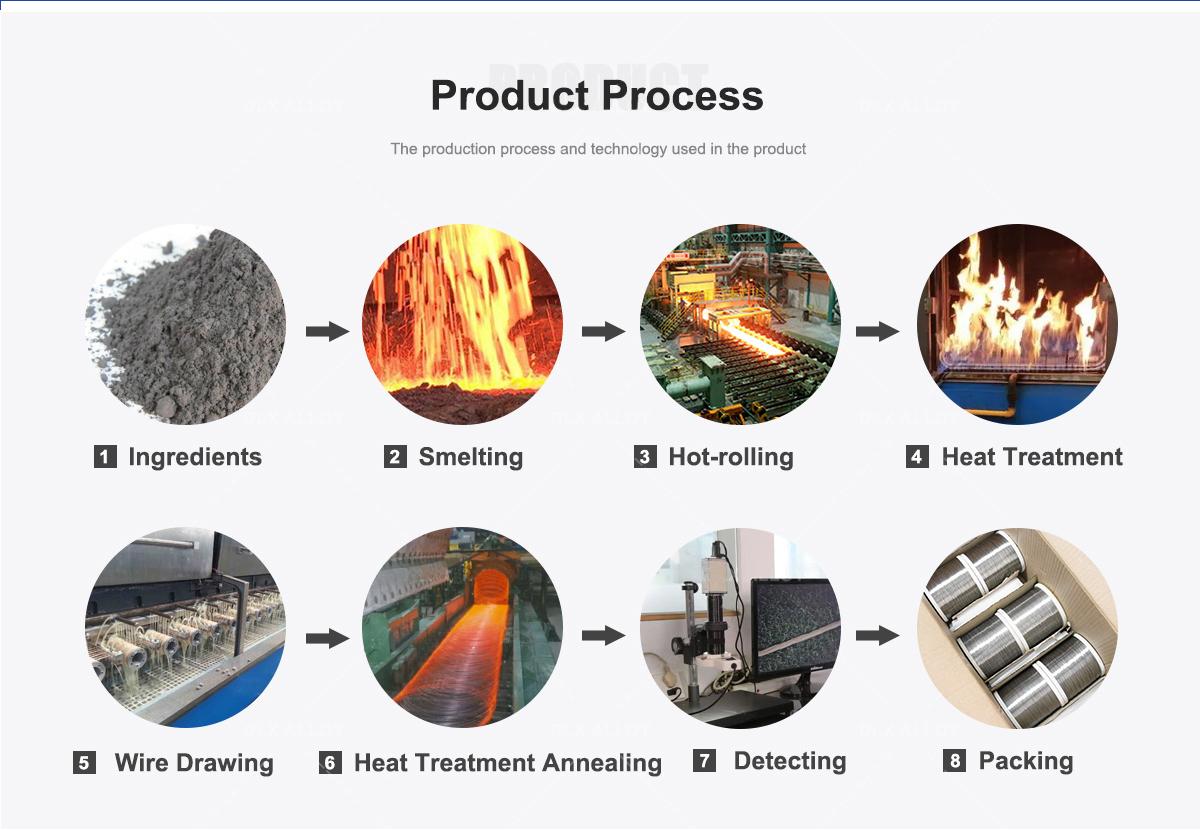
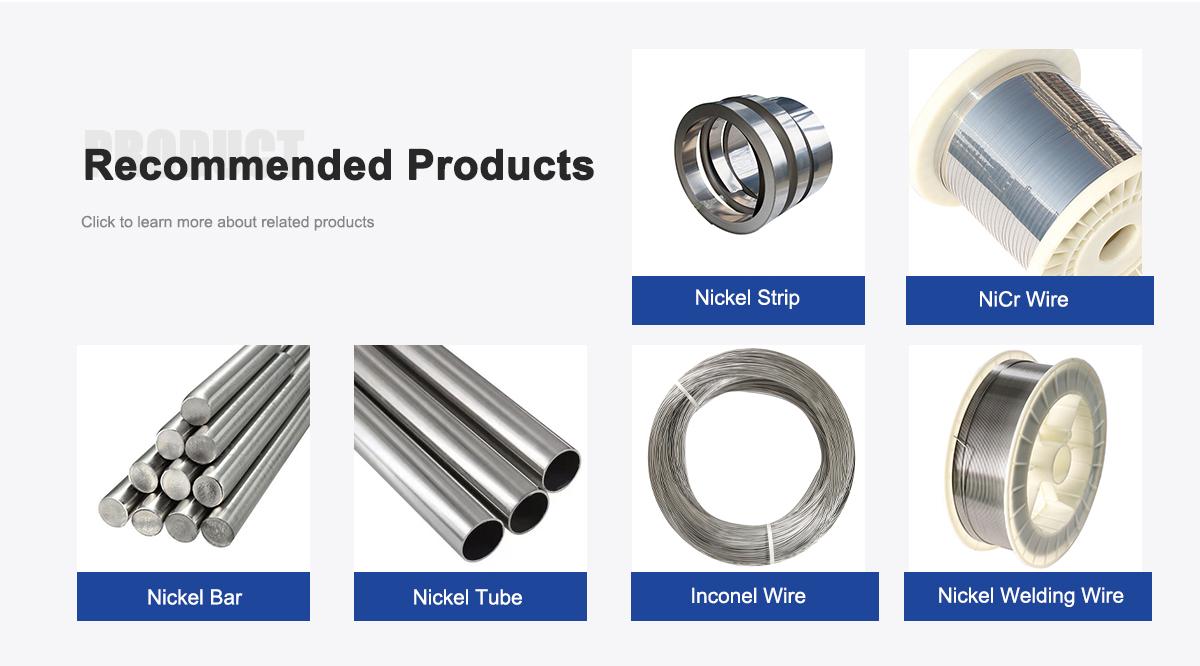
About Us:
Our 12,000㎡ factory is equipped with complete capabilities for research, production, testing, and packaging. We strictly adhere to ISO 9001 standards in our production processes, with an annual output of 1,200 tons. This ensures that we meet both quantity and quality demands. Furthermore, all products undergo rigorous simulated environment testing including high temperature, high pressure, and corrosion tests before being dispatched, ensuring they meet customer specifications.
For all our clients, we offer timely and multilingual after-sales support and technical consulting, helping you resolve any issues swiftly and efficiently.
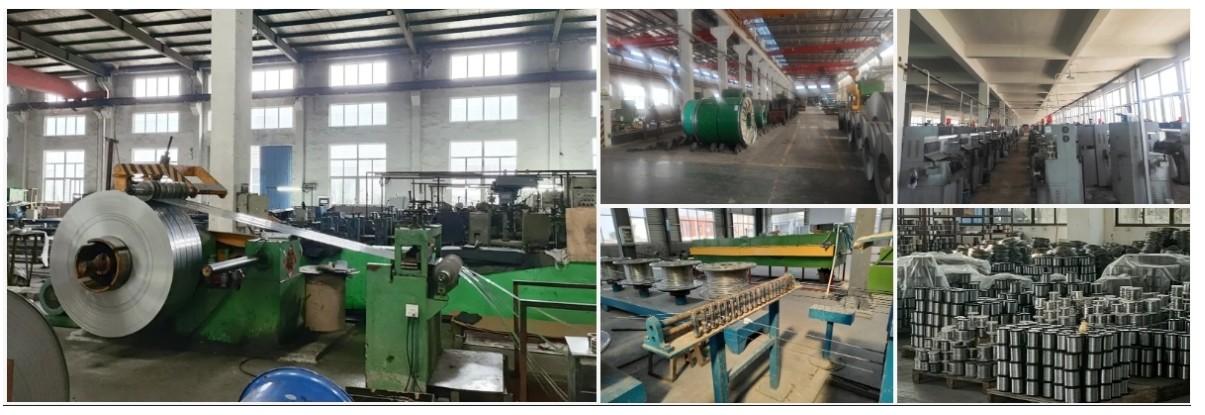
Client Visits
Building Stronger Partnerships
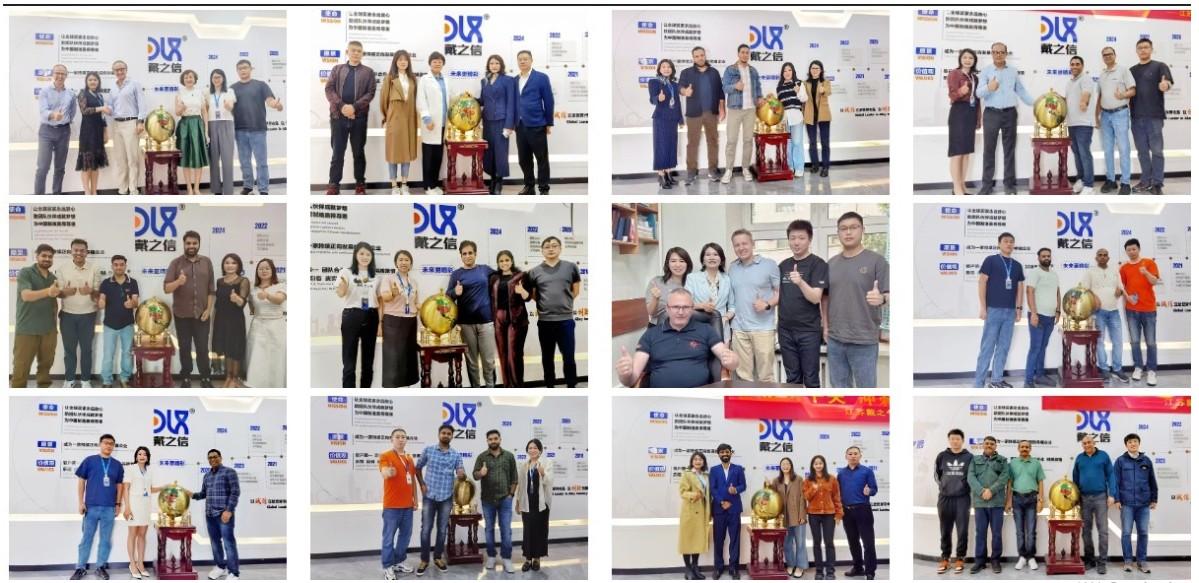
We support all kinds of testing:
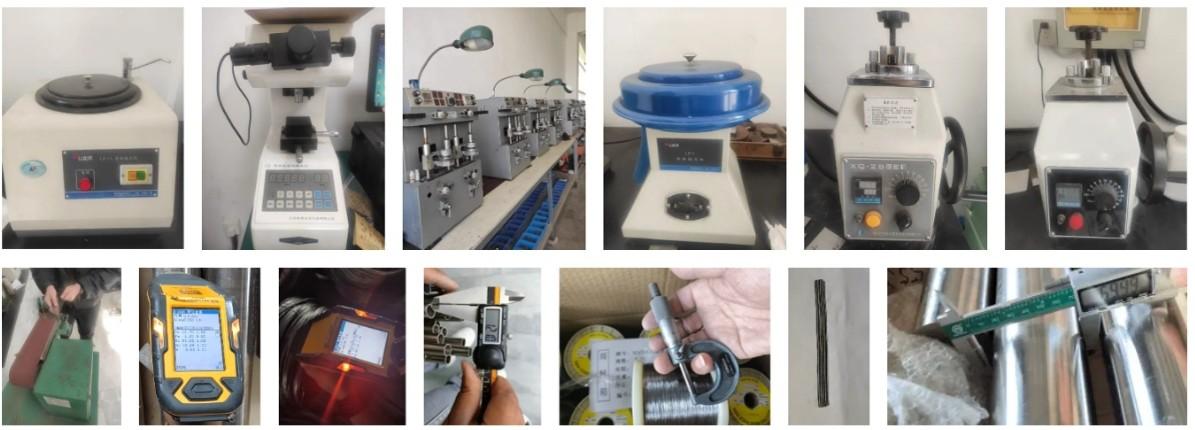

FAQs:
-
What is ASTM B863 titanium wire made of?
It’s typically Grade 2 (99.2% pure titanium) or Grade 5 (Ti-6Al-4V with 6% aluminum, 4% vanadium) for industrial and chemical applications, balancing corrosion resistance and strength. -
What are the main uses of ASTM B863 titanium wire in industrial and chemical processing?
It’s used for heat exchangers, piping, valves, and chemical reactor components due to its corrosion resistance and durability in harsh environments. -
How does ASTM B863 titanium wire compare to other materials like stainless steel?
It offers superior corrosion resistance to acids and chlorides compared to stainless steel, with a better strength-to-weight ratio for industrial applications. -
Is ASTM B863 titanium wire suitable for high-temperature environments?
Yes, Grade 5 withstands temperatures up to 600°F (316°C), and Grade 2 up to 400°F (204°C), ideal for chemical processing conditions. -
Can ASTM B863 titanium wire be welded for industrial applications?
Absolutely, it’s weldable with inert gas shielding, creating strong, corrosion-resistant joints for chemical processing equipment. -
What industries besides chemical processing use ASTM B863 titanium wire?
It’s used in aerospace, marine, and medical industries for its corrosion resistance, lightweight properties, and biocompatibility. -
How easy is it to work with ASTM B863 titanium wire?
Grade 2 is highly formable and easy to machine, while Grade 5 is less ductile but stronger, requiring specialized tools for precision work. -
What are the industry trends for ASTM B863 titanium wire?
Demand is growing for corrosion-resistant materials in chemical plants, with trends toward sustainable production and additive manufacturing for custom components.

